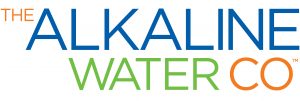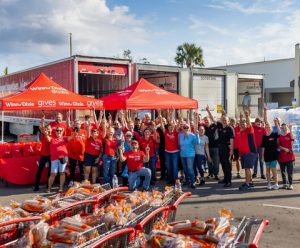 Arizona-based The Alkaline Water Company Inc., the country’s largest independent alkaline water company and the Clean Beverage company, has received orders for the 2 Liter, available as an individual unit or in the 6-pack Shaq Paq, from more than 8,000 stores since the beginning of the year.
Arizona-based The Alkaline Water Company Inc., the country’s largest independent alkaline water company and the Clean Beverage company, has received orders for the 2 Liter, available as an individual unit or in the 6-pack Shaq Paq, from more than 8,000 stores since the beginning of the year.
“Alkaline88 drinkers love the 2-Liter bottle and it has quickly become one of our best-selling products,” said Frank Lazaran, president and CEO of The Alkaline Water Company. “In addition to being a perfect fit for the fridge or gym bag, our product collaboration with Alkaline88 brand ambassador Shaquille O’Neal has helped generate interest in this great product.
“The Alkaline88 Shaq Paq will soon hit Stater Bros. shelves in Southern California, accompanied by 7-foot-tall in-store displays featuring our smiling brand ambassador. Their stores are just the latest of over 8,000 to order the 2-liter bottle since January of this year. Additional regional and national chains are still in the pipeline to add the product over the next 12 months. Alkaline88’s return on trial is strong, so having another great product with strong shelf appeal should help us convert even more water drinkers across the country to deliciously smooth Alkaline88.”
Founded in 2012, the company is headquartered in Scottsdale. Its flagship product, Alkaline88, is a leading premier alkaline water brand available in bulk and single-serve sizes along with eco-friendly aluminum packaging options. With its innovative, state-of-the-art proprietary electrolysis process, Alkaline88 delivers perfect 8.8 pH alkaline drinking water with trace minerals and electrolytes and boasts our trademarked label “Clean Beverage.” 2021, The company was pleased to welcome Shaquille O’Neal to its board of advisors and to serve as the celebrity brand ambassador for the Alkaline88.
For updates on food and beverage companies, subscribe to Gourmet News.

